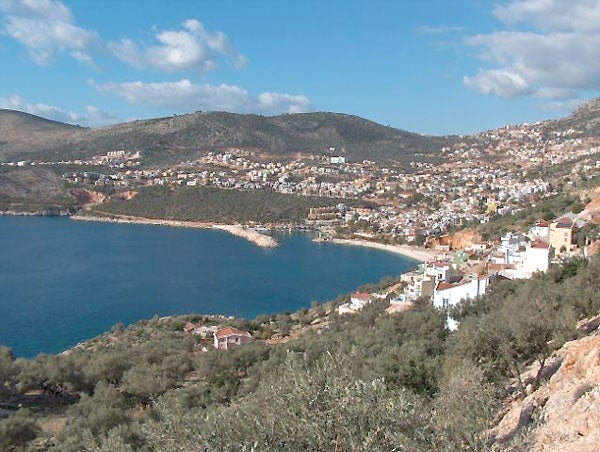Are you safe if your holiday firm goes bust?
The collapse of Goldtrail Travel means it's essential to check your holiday plans

Today is one of the major holiday getaways of the year after the majority of schools broke up yesterday. In fact, ABTA estimates that 1.9 million of us will be heading overseas this weekend.
But many will be travelling with a little more fear after the collapse of Goldtrail Travel eight days ago. The collapse of the tour operator left about 16,000 people struggling to get home from holidays in Greece and Turkey, with a further 30,000 or so seeing their summer holiday plans in ruins.
The good news in this sorry affair is that all these people should get their money back under a European "Package Travel Directive". In Britain its through a bond scheme run by Atol (Air Travel Organisers' Licensing). The scheme protects people booking "package holidays", which is defined as when a tour operator provides at least two of the following: flights, accommodation, car hire and entertainment.
The bad news is that it can take months to get a refund under the scheme. However, anyone needing to do so can get the ball rolling by completing a claim form found at the Civil Aviation Authority's website at www.caa.co.uk. If you booked by credit card direct with Goldtrail, you should approach your card company for a refund instead.
In fact, you could claim a full refund if you booked via credit card, as long as your holiday cost between £100 and £30,000. The purchase of your holiday will be covered by section 75 of the Consumer Credit Act, which ensures that customers are able to claim a refund for goods that don't arrive or those bought through suppliers that go out of business. You have similar protection if you pay with a Visa debit card, under the Verified by Visa scheme.
For the rest of us, is it likely that another travel firm could go bust this summer? Recent history suggests yes. Two years ago around 85,000 people were stranded abroad and 200,000 more lost their holidays when XL Leisure went bust in September 2008. In 2006 the collapse of HCCT Holidays left 40,000 disgruntled customers.
How can you protect yourself against the collapse of a tour operator? There's little you can do. It's quite likely that Goldtrail knew it was in trouble before its collapse yet it still continued to take bookings, presumably in the hope that things would be OK. The same is likely to happen if other companies get into trouble.
Frankly the best clue that a firm is struggling is likely to be found in the business pages, but scanning City news for profit warnings is not most people's idea of planning for a holiday.
One thing you can do is make sure your tour operator is actually covered by the ATOL scheme. Check a tour operator has an ATOL number and, if you're at all suspicious, check that number with the Civil Aviation Authority. If you pay any money – even so much as a deposit – to a UK holiday company for a flight or an holiday package with flights, the sale should be ATOL protected.
Get a free fractional share worth up to £100.
Capital at risk.
Terms and conditions apply.
ADVERTISEMENT
Get a free fractional share worth up to £100.
Capital at risk.
Terms and conditions apply.
ADVERTISEMENT
If you're one of the 27 million Brits who books flights, hotels and car yourself rather than going through a tour operator, you are not protected under the ATOL scheme, although that is likely to change soon. The EU is looking at extending the rules to cover these so-called "dynamic packages" so that all holidaymakers get equal protection if a holiday company or airline goes bust.
In fact, even if you've booked through a travel agent you may not actually be covered by the scheme if the agent booked the parts of your holiday separately. Under a landmark 2006 court ruling, the Association of British Travel Agents won the right for travel agents to opt-out of the ATOL scheme when handling DIY holiday bookings. So it's worth checking with your agent to find out whether your holiday is protected.
Airlines are not included within the ATOL scheme, so if you booked direct with an airline that goes bust you may not be protected. More than 60 small airlines have gone out of business across the world in the last 18 months alone, so it may be more risky to book flights with a small supplier rather than one of the major airlines.
Holidaymakers who have booked flights direct are only covered for the airline going out of business if they paid more than £100 on a credit card. You may also be covered under any travel insurance you have, but you'll need to check the terms of the policy to make sure. While a travel insurance policy can cover you for an airline going bust, some policies are better than others. Check your insurance has scheduled airline failure cover, for example.
However, some travel websites – such as Expedia – do offer ATOL protection for two or more elements of a traditional holiday such as flights and hotel. If EU accommodation, flight or car hire are all booked separately and you run into problems you may be able to get help from the European Consumer Centre on 08456 04 05 03.
*Meanwhile, AXA warned this week of the dangers of taking personal possessions on holiday. It reckons more than £7bn-worth of electronic gadgets will go on holiday with British holidaymakers this summer. The firm warns that standard travel insurance may not cover all these items.
Join our commenting forum
Join thought-provoking conversations, follow other Independent readers and see their replies
Comments
Bookmark popover
Removed from bookmarks